This is the third “copywriting tips” article, designed to help you achieve more with your messages. My goal is to help you write more persuasive copy to attract a prospect to your business. The key word here is “persuasive.”
During my marketing workshops in Manchester, I am often asked if there are words that sell better than others. The simple answer is “YES” and this has been proven over the years by professional copywriters around the world. These conclusions have been reached scientifically through rigorous testing.
Let’s jump in and take a look at the top five power words and the science behind them…
Using Power words
Great copywriters know that there are certain, more persuasive words in copywriting that deliver a bigger punch compared to others.
The top 5 are considered to be:
1. You – what I mean by this is a person’s name rather than the word itself, although it still ranks high in the list of power words.
2. Free
3. Because
4. Instantly
5. New
Let’s take a closer look at each word…
You – Recent tests using magnetic resonance imaging to measure brain activation patterns proved very interesting. These findings provide clear evidence that hearing one’s own name generates unique brain functioning activation. This is specific to one’s own name compared to the names of others.
We are conditioned from birth to listen and look for our names. Therefore our autoresponders are immediately on alert as soon as we see or hear our name. Using a person’s name is therefore very powerful to gain immediate attention.
The word “you” itself is also very powerful in copy. Whenever I read websites or sales letters I check for the “I” or “you” ratios. Most websites and other sales copy speak about them, and what they do, what they offer and how good they are. Nobody cares! As readers, we are interested in what a company can do for US, how they can help US. In others words, we read with a “what’s in it for me” attitude.
Free – As you would expect, this word is extremely powerful in any sales discussion. Providing great value is so important these days, and there is now an expectation that you can obtain something of value for free with many transactions. Providing free goods can certainly influence a reader’s choice between goods, simply because one choice can be deemed better overall value compared to the other.
Because – Robert Ciandini first brought this to our attention in his book ”Influence, Science and Practice.” It’s a great book and one I recommend. In the book he describes a specific test which was undertaken with a queue for a photocopier. The result of the study concluded that using the word “because” in the sentence to ask to jump the queue and push ahead of others, presented a more rational and plausible reason for allowing them into the queue. This was irrespective of the reason why they needed to “push in!” It seems bizarre and yet the human psyche appears to need a reason to justify an action, even if the reason doesn’t really make sense. In this example, maybe it’s justification not to start an argument.
Using the word “because” in your copy sends the signal that you are providing more information, more reason why, more explanation to satisfy the reader’s demands. Because is a justifying word and sometimes this is all people need to move ahead in a transaction.
Instantly – people appear to be more impatient these days. We all want things yesterday. There’s a certain sense of disappointment that we are missing out on that special moment, you know the one when you’ve saved for so long to buy that car or a house! There’s a special sense of achievement attached to it that you savour. Sadly, it’s missing so much today with the ability to obtain finance which makes so many big purchases instant.
There are certain MRI studies that have concluded that some words stimulate the brain more than others. Those that invoke the sense of fast reward appear to stimulate the brain more. Therefore solving people’s problems quickly, may lower the barrier to purchase, with the promise of speedy resolution.
There’s been a saying in sales for many years…”speed stuns.” This means that super-fast service or response surprises and delights people – interesting! Now it’s proven through medical science that we are also conditioned to enjoy rewards when presented quickly!
Beware of the negative aspects of this word…
New – we all like new things. It’s not always about being the first, or even receiving a brand new object, as new could mean anything. We like the novelty of having something new. We are suddenly the centre of attention, albeit briefly. We feel great or look good as a result of having something new. This is tied to our self-image and reward centre in our brains, which in turn provides the variety of good feelings attached to having something new.
New is not always good. New products are sometimes harder to sell until there is a critical mass using it, or there is sufficient social proof to confirm that they fulfill their promise. A new brand is more difficult to sell, especially in a time-served industry, as people trust older brands and old understand their position in the market.
Whilst the word “new” is still very powerful, its use can sometimes have potential negative tones, and therefore the copy has to be carefully written to overcome the obvious downsides.
It’s important to use these power words sparingly, but in the right places. Let’s not lose sight of the all-important message by trying to cram too many into one sentence, especially with a headline. I’ve seen this so often, to the extreme that the headline itself just didn’t make sense! As the writer said at the time, “yes, but if you read the copy, then you’ll understand the headline.” Oops, he obviously forgot the reason why a headline is the most important element in a written piece. If the reader isn’t attracted by the headline, then they won’t read the copy. End of discussion.
Whenever I create headlines, I will write many using these powerful words. However, I also use many other power words in my headlines and choose the most appropriate for initial testing. I highly recommend you so the same.
Check out Part 1 and Part 2 in this copywriting tips series of articles.

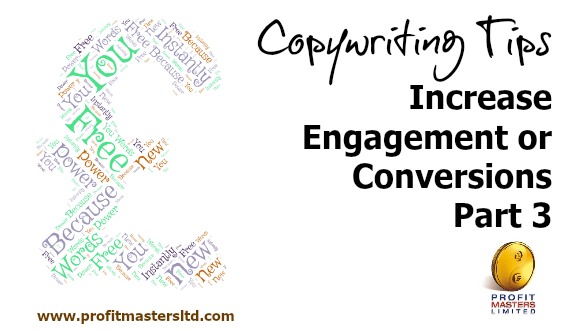
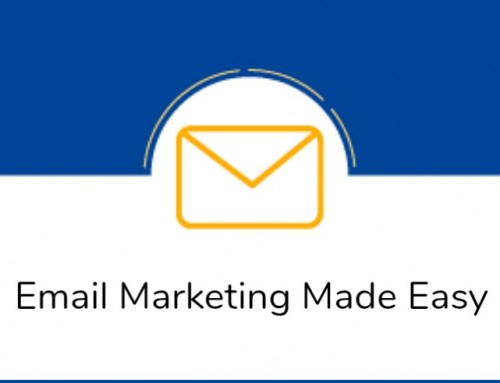
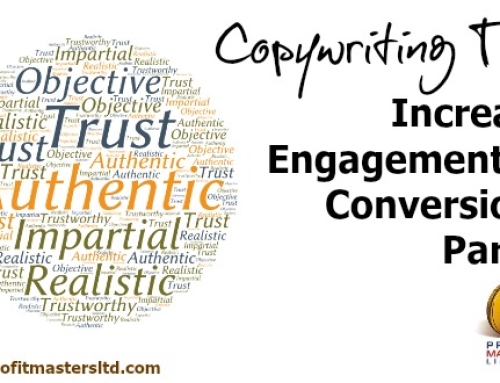
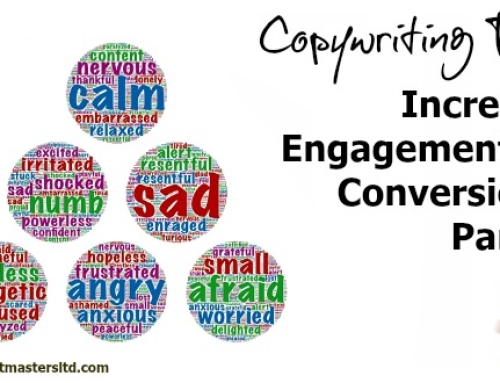
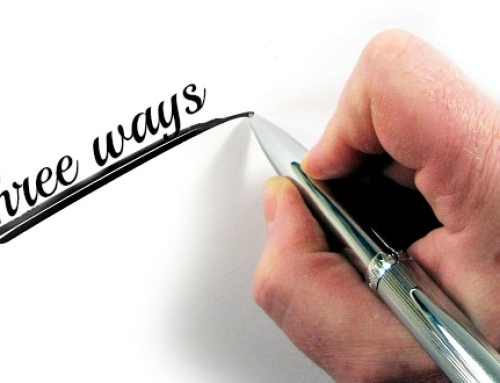
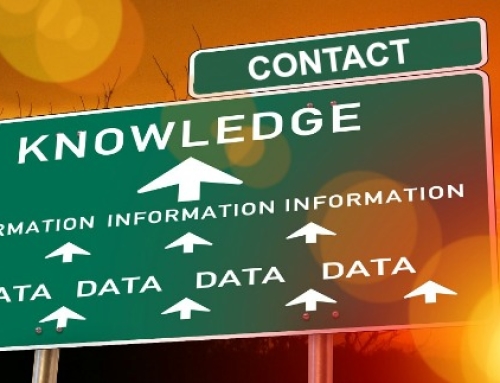
Leave A Comment
You must be logged in to post a comment.